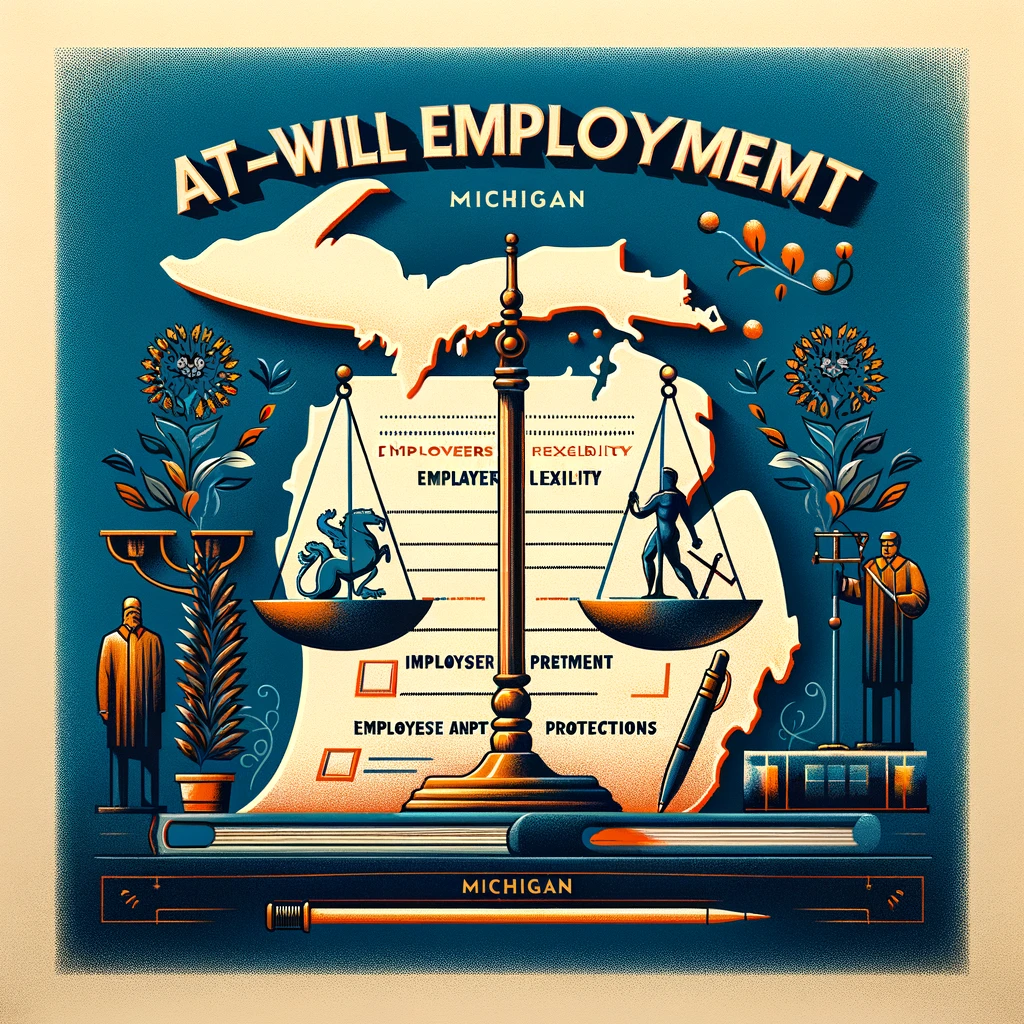Navigating Michigan's At-Will Employment Landscape: A Deep Dive
Introduction
Michigan's labor market operates predominantly under the principle of at-will employment, a concept that holds significant implications for both employers and employees. Understanding the nuances of at-will employment in Michigan is crucial for navigating the legal and practical aspects of the workplace effectively. This comprehensive guide aims to shed light on the intricacies of at-will employment, offering insights into its definition, legal exceptions, and rights and responsibilities for parties on both sides of the employment relationship.

Understanding At-Will Employment in Michigan
At-will employment, the default employment relationship in Michigan, allows either the employer or the employee to terminate employment at any time, with or without cause, and with or without notice. This flexibility, however, is bounded by various legal constraints designed to prevent unjust practices.
Legal Framework of At-Will Employment
The legal foundation for at-will employment in Michigan is established through both statutory law and court decisions. The Michigan Legislature's website (Michigan Legislature) provides access to the state's labor laws, offering a starting point for understanding the statutory landscape. Additionally, landmark court decisions, accessible through the Michigan Courts' official site (Michigan Courts), further delineate the boundaries of at-will employment practices.
Exceptions to At-Will Employment
Despite the broad applicability of at-will employment, Michigan recognizes several exceptions to this rule, ensuring protection against wrongful termination:
Public Policy Exception: Employees cannot be terminated for reasons that violate Michigan's public policy, such as filing a workers' compensation claim or refusing to commit an illegal act.
Implied Contract Exception: An implied contract, formed through employer statements or employment manuals, may limit the ability to terminate only for cause.
Covenant of Good Faith and Fair Dealing: Rarely applied, this exception suggests that terminations made in bad faith or motivated by malice may be actionable.
For a deeper understanding of these exceptions, the Michigan Department of Labor and Economic Opportunity provides resources and guidance.
Rights and Responsibilities
Employer Considerations
Employers in Michigan must navigate the at-will employment doctrine carefully, ensuring compliance with both federal and state laws. Key considerations include:
Documenting Employment Policies: Clearly documented policies help define the employment relationship, setting clear expectations for employees.
Consistent Application of Policies: Employers must apply policies consistently to all employees to avoid claims of discriminatory treatment.
Awareness of Legal Exceptions: Understanding the exceptions to at-will employment can help employers avoid wrongful termination lawsuits.
Employee Protections
Employees, on the other hand, should be aware of their rights within an at-will employment framework:
Understanding Employment Documents: Employees should review any employment documents, such as handbooks, to understand the terms of their employment.
Recognizing Unlawful Termination: Employees should be aware of the exceptions to at-will employment that provide protection against wrongful termination.
Legal Recourse: Employees who believe they have been wrongfully terminated may have recourse through the Michigan Department of Civil Rights or the courts.

Create & Review Your Contracts 10x Quality and Ease
Lawyer-level AI handles all your contract needs, with real lawyers providing safeguarding support

Navigating Termination and Resignation
Both employers and employees should handle termination and resignation with care, respecting legal requirements and ethical considerations.
Best Practices for Employers
Providing Notice When Possible: Although not required, providing notice can foster a more positive transition.
Documenting Reasons for Termination: Keeping records can protect against potential legal challenges.
Guidance for Employees
Giving Notice: While not legally required, providing notice is a professional courtesy that can maintain positive relationships.
Understanding Post-Termination Rights: Employees should inform themselves about their rights regarding unemployment benefits and severance packages, if applicable.
Conclusion
Michigan's at-will employment landscape offers flexibility for employers and employees alike, but it also requires a keen understanding of the legal framework that governs employment relationships. By staying informed about the rights and responsibilities inherent in at-will employment, both parties can navigate their working relationships more effectively and ethically.
For further information and resources, visit authoritative sites like Wikipedia's overview of at-will employment for general knowledge, or specific state resources such as the Michigan.gov site for localized legal guidelines and support services. Engaging with these resources can provide both employers and employees with the knowledge needed to make informed decisions in the workplace.

